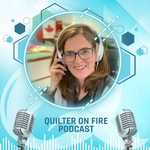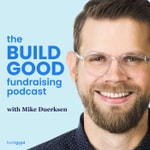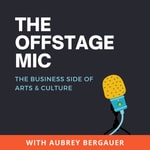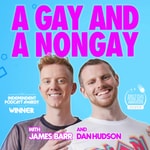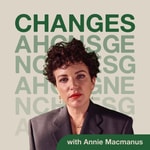Why do people give? – Détails, épisodes et analyse
Détails du podcast
Informations techniques et générales issues du flux RSS du podcast.

Why do people give?
Mark Phillips
Fréquence : 1 épisode/105j. Total Éps: 19

Classements récents
Dernières positions dans les classements Apple Podcasts et Spotify.
Apple Podcasts
🇬🇧 Grande Bretagne - nonProfit
08/07/2025#100🇬🇧 Grande Bretagne - nonProfit
07/07/2025#86🇬🇧 Grande Bretagne - nonProfit
06/07/2025#81🇬🇧 Grande Bretagne - nonProfit
05/07/2025#75🇬🇧 Grande Bretagne - nonProfit
04/07/2025#66🇬🇧 Grande Bretagne - nonProfit
03/07/2025#54🇬🇧 Grande Bretagne - nonProfit
02/07/2025#49🇬🇧 Grande Bretagne - nonProfit
01/07/2025#19🇬🇧 Grande Bretagne - nonProfit
21/06/2025#99🇬🇧 Grande Bretagne - nonProfit
20/06/2025#86
Spotify
Aucun classement récent disponible
Liens partagés entre épisodes et podcasts
Liens présents dans les descriptions d'épisodes et autres podcasts les utilisant également.
See all- https://www.tht.org.uk/
29 partages
- https://www.anc1912.org.za/
6 partages
- https://joindpp.org/
4 partages
Qualité et score du flux RSS
Évaluation technique de la qualité et de la structure du flux RSS.
See allScore global : 73%
Historique des publications
Répartition mensuelle des publications d'épisodes au fil des années.
Interview with Paul Amadi MBE, Chief Supporter Officer at the British Red Cross
Saison 2 · Épisode 6
mardi 27 août 2024 • Durée 01:00:06
In today’s episode of Two Ps on a Pod, Giles and Mark meet up with Paul Amadi MBE, Chief Supporter Officer at the British Red Cross.
In a wide-ranging discussion, we consider the rights and (mainly) wrongs of transactional fundraising, we look at where the Red Cross is looking to innovate and what the future of successful fundraising might look like.
Paul shares his thoughts on how a charity can encourage people who give at times of emergency to continue their support when the news media moves on to other concerns. And we consider how the Red Cross brand is managed and whether it is important that the promotional focus of the charity should cover all aspects of the charity’s operations.
If you'd like to speak to Giles, you can email him at giles@gilespegram.com. Mark can be found at hello@bluefroglondon.com.
Agree? disagree? Why not make a comment and let us know. And if you've got an opinion you'd like to share, tell us why you'd like to join us on the sofas!
How do you learn what's the best thing to do in fundraising?
Saison 2 · Épisode 5
lundi 5 août 2024 • Durée 52:21
In our latest podcast, I’m back with Giles to look at how we – as a fundraisers – learn what we should be doing to engage donors and raise more money.
One of the problems that we face in the sector is the huge amount of information that’s available advising us on what we should be doing when developing our fundraising plans. Much of it is contradictory and a fair amount of it is downright dangerous!
This creates a huge dilemma when trying to work out what’s good advice and what’s bad. So In the podcast, we try and work out how we should tackle the thorny subject of learning, covering the following points:
The Balance Between Excitement and Effectiveness
Why do we strive to make fundraising exciting? We consider the balance of sticking to proven and effective methods compared to copying that new idea that’s getting loads of likes on social media.
The Role of Conferences and Content Curation
Fundraising conferences often grapple with choosing between showcasing best practice and presenting exciting new ideas (that sell most tickets). We explore this dilemma and emphasise the importance of learning from experience, insight, and wisdom rather than just chasing innovation for its own sake.
Learning from History
We look at how historical knowledge can inform modern fundraising strategies and consider the fact that by studying past successes and failures, fundraisers can avoid repeating mistakes and build on what has been proven to work.
The Challenge of Sharing Best Practices
We ask who should be responsible for defining and sharing best practice? We don’t think it should be the responsibility of individual fundraisers, but discuss the need for a more structured approach to disseminating knowledge led by sector bodies or perhaps even through collaborative efforts among larger charities.
Practical Takeaways
Finally, as ever, we also include some practical advice and suggest that sometimes the best way to innovate is to stop trying to do everything differently. Instead, focus on what has been shown to work and adapt it to current circumstances. Or as we say…
' Perhaps what we should start doing differently, is stop doing things differently.'
There’s plenty more shared in the podcast, with links to watch and listen below…
The Mid-Level one with Angela Cluff
Saison 1 · Épisode 4
lundi 2 mars 2020 • Durée 01:03:11
This is a must-listen for anyone interested in mid-level donors. It's actually a must-listen for everyone, but particularly for those with mid-level donors within their remit.
Angela Cluff started out her career at the British Heart Foundation before moving to the NSPCC where she was Head of Major Donor Development. She then became joint head of the Full Stop Campaign and Giles Pegram's deputy. As well as being the Vice-Chair of Oxfam GB, Angela now works as a consultant.
There are so many highlights here that it's hard to single any out. It really is a masterclass in mid-level donor fundraising.
Angela uses the terminology they used at the NSPCC in the 1990s, so it might be useful to explain a couple of phrases here. Both groups fit broadly into today's mid-level zone.
- Major Donors were supporters that gave anywhere between £500 and £2,000.
- Core Donors were those who gave over £2,000.
But as Angela explains, her approach wasn't based on just how much donors gave, but also focused on their level of commitment.
This meant that they looked at donors as individuals and tried to develop approaches that worked for them as much as they worked for the NSPCC. As you'll hear, Angela often answers my questions with the phrase, "It depends" as she explains yet again how she worked with donors to help them discover what projects they wanted to support and their communication preferences.
We talk about cash gifts, monthly giving, legacies and giving clubs along with how events should fit into any mid-level programme.
And of course, we spend a great deal of time discussing why people give with reference to each individual donor's needs, history and life-experiences.
We also talk about great ways to improve the supporter experience and hear Angela's views on the best way to work with consultants.
It's great stuff - I hope you enjoy it.
You can contact Angela here.
As a bonus, I've also included a message from Beth Crackles who has a fantastic series of podcasts called Cracking Charity Chat. It's always worth a listen.
The one with Lyndall Stein
Saison 1 · Épisode 3
mardi 14 janvier 2020 • Durée 01:14:38
Lyndall is a remarkable fundraiser. Her experience includes setting up the UK fundraising operation for the African National Congress when Nelson Mandela was still in prison. She then went on to work for the Terrence Higgins Trust when HIV and AIDS were still beyond treatment before moving on to The Big Issue Foundation.
What makes this interview so special is that Lyndall repeatedly had to work without budget and with very little in the way of resources – no computers, no filing systems, no agency and no database. But what she achieved is amazing.
She shows how she identified her audience and used the fundamentals of direct marketing – through testing – to make her advertising as effective as possible whether it was ads on the front page of The Guardian or through developing mailing packs (with techniques that are still effective today).
Lyndall speaks of the importance of learning from the experience of others and sharing knowledge. And to that end she gives us her advice on use of photographs and the need to make sure that our language is right for our supporters.
We discuss offering donors choice. Whilst working for the ANC, Lyndall included tick boxes on her response devices so donors could choose how a gift should be used – schools, hospitals, or 'wherever it was most needed’. As we see today when we use the same technique, many ticked the most needed box, but since the interview, I've learned that some donors added an extra box of their own ‘for AK47s’.
We speak about hate mail and how the advice her father gave her - "chuck it straight in the bin" is as relevant for today's trolls – with their anonymous and abusive Twitter accounts – as it was then.
But what I found most valuable are Lyndall’s thoughts on what fundraising is good at and what it isn’t. It can raise money, but don’t think of it as a cheap route to boost PR or promote an ideology – even when you are part of a liberation movement.
And, of course, she shares her thoughts on why people give where we spend plenty of time talking about connection.
You can see some of the fundraising materials that Lyndall speaks about on my blog, queerideas.co.uk.
The one with Ken Burnett
Saison 1 · Épisode 2
mardi 17 décembre 2019 • Durée 01:16:17
This was another treat for me. Ken remains a huge influence on my thinking and this is the first time I’ve been able to dig into who and what influenced him.
We kick off with a history of ActionAid. Ken shows how an open mind and the implementation of best practice saw a small niche charity sky rocket in popularity. Pay particular attention to his comments on testing. Plenty to be learned here about innovation and how even the most unconventional recruitment practices can pay dividends.
It’s when we get to the question of why people give that things get really interesting. We discuss how artifice seems to have taken over from engagement for many organisations. We also cover leadership, the supporter experience and how the fundamentals of fundraising seem to have been forgotten – and how they are essential for our future success.
Ken takes us through some of his favourite appeals and explains why they worked and what made them successful and finally we move on to his thoughts for the future. We revisit best practice again before Ken makes a few trademark points about the need to switch from fundraising and focus on how we can be part of the change the world movement instead. All the resources can be downloaded on my blog, queerideas.co.uk
The one with Giles Pegram
Saison 1 · Épisode 1
lundi 2 décembre 2019 • Durée 01:22:18
Giles is one of the most successful fundraisers I know. He dramatically changed the fortunes of the NSPCC over the course of three decades, taking them from an income of under £5 million with reserves that would keep them going for just two months to an organisation with a huge national reach and an income of over 140 million a year.
You'll find out how he achieved this as he shares his thoughts on how to appoint and work with agencies, how to run successful capital campaigns, the importance of thanking, how he led his team, his thoughts about why innovation can be a problem and, importantly, his views on why people give.
Interview with Sir Peter Wanless, CEO of NSPCC
Saison 2 · Épisode 4
lundi 1 juillet 2024 • Durée 01:02:30
I’m pleased to be able to share Episode 2 of 'Two Ps on a Pod' with Giles Pegram CBE, where we had an incredible conversation with Sir Peter Wanless of NSPCC. We dug deep into the world of fundraising from the unique perspective of a CEO.
🎙️ This episode is a must-listen for anyone looking for insider tips on engaging your CEO with your fundraising mission. Did you know Sir Peter dedicates about 40% of his time to fundraising? He’s even sold some of his favorite shirts and abseiled down buildings for the cause!
Key topics include:
- Growth areas in Individual Giving (IG)
- Aligning fundraising strategy with overall charity strategy
- Avoiding the pitfalls of ‘shrinking to success’
- Advice for new fundraisers
Episode 3 is already recorded, where we’ll discuss how fundraisers learn and the dangers of misinformation in the sector. That will be released in about two weeks.
Until then, I hope you enjoy this hour with Sir Peter.
🔗 Watch the latest episode on Youtube. https://youtu.be/2ElHlVEabnM?si=Vzb1HfRlHfbPx8O_.
We’re publishing new episodes every two weeks. Share your thoughts and ideas for future shows here, on YouTube, or via email at hello@bluefroglondon.com or giles@gilespegram.com.
The introduction to Two Ps on a Pod
Saison 2 · Épisode 3
lundi 17 juin 2024 • Durée 01:01:24
I've got something special for you today!
Over the past few years, I've recorded several Why Do People Give? podcasts with Giles Pegram CBE, which have always been well recieved. We've typically discussed specific issues affecting the sector, such as COVID-19 and the cost-of-living crisis, providing insights and recommendations for fundraisers.
However, we both had thoughts about bringing other voices to your attention, both within and outside the sector. So, we've created a new video podcast on YouTube – but you can also listen to the audio here.
It's called Two Ps on a Pod, with the first episode launching today. In this episode, we discuss some of the statistics and findings from my recent LinkedIn videos and share our plans for the coming months.
You'll learn more about the £5.5 billion wealth transfer in the UK that will transform fundraising over the next decade, the importance of responding to donors' needs, reasons why donors lapse, how giving attitudes change with age, and the necessity of integrating appeals over time instead of having everything look the same.
But it’s the next episodes that are particularly exciting as we’ve got some great guests lined up:
A CEO of a major UK charity discussing their views on the fundraising function and its integration into the charity's strategy.
A senior regulator offering insights on the future of fundraising and potential considerations for the next government.
A branding specialist talking about what charities get right and wrong about branding, and sharing stories about famous UK TV ad campaigns.
Donors sharing their giving experiences, ranging from those giving hundreds to millions each year, providing fascinating perspectives on decision making.
That's just the beginning! In the following months, we plan to speak with people from Supporter Services departments, a patron on two, a head of a significant foundation, a psychologist, market researchers, academics, and a journalist. We'll also have a few fundraisers coming on to share some background into some significant fundraising campaigns. You'll find out what worked and what didn't.
There will also be plenty of episodes where Giles and I discuss current sector happenings and topics that should be of interest. Hopefully everything we share will help you become a more informed fundraiser.
We are planning to publish new episodes every two weeks moving forward so if you'd like to share thoughts and ideas for future shows, please let us know in the comments!
The missing £5 billion one with Giles Pegram
Saison 2 · Épisode 2
jeudi 7 mars 2024 • Durée 54:53
Over the last month, I've shared a series of videos on LinkedIn looking at the reasons behind the fact that since 2005 we've seen individual giving income shrink – in real terms – by £5 billion.
I'm joined today by fundraising consultant, Giles Pegram where we dig into the reasons behind this decline and make a few suggestions about what we have to do as a sector if we want to turn things around.
The Donor Participation Project with Louis Diez
Saison 2 · Épisode 1
mercredi 4 mai 2022 • Durée 34:49
Today's podcast features Louis Diez, the founder of the Donor Participation Project (DPP).
Louis set up the DPP with a single goal – to try to reverse the decline in the number of people giving to charity. Until recently, its members have predominantly been US fundraisers, but increasingly, more people from around the world are joining and the group is now 1,500 strong. I recently signed up, and if you listen to what Louis has to say, I think you will too.
Membership (which is free) offers access to monthly, 45-minute online discussion sessions where the group gets together to share ideas and thoughts about what's moving the needle of giving in the right direction. These are backed up with loads of great content shared on the DPP LinkedIn group. They have also just launched their first online conference.
The conference is a series of two-hour sessions where one or two core speakers lead with their thoughts on a specific area of fundraising and a group of other practitioners then share a single piece of insight in two-minute lightning presentations. Everything is pulled together in the chat. This Friday's session (6th May 2022) is on scrappy innovation and next Friday they are looking at the future of major gift fundraising. If you are interested you can find out more and sign up here. There is a small payment for the conference but you'll also get access to videos of the previous sessions. The first was on how donor's preferred communications styles are changing and the second looked at how we can grow engagement amongst people from under represented groups (where you'll see me appear in a lightning session sharing an important finding from our new research into attitudes to giving amongst British Hindus).
The DPP is building a community of fundraisers who care about growing their understanding of what is working – and sharing what they learn. They know there is no simple answer and recognise that hearing many different voices increases the chances of producing incremental advances. But they also realise that these have to be delivered through a system that makes ideas and new approaches accessible.
To that end, they work with three pillars – understanding the dynamics of content delivery, appreciating how a community functions and finally, how to best make that ask. It's all straightforward stuff, but what makes it so exciting is that the focus is on low-cost solutions - often driven by free tech.
So take a listen and see what you think. You'll hear that Louis is a Higher Education fundraiser so we do spend some time talking about alumni giving before moving on to broader fundraising topics, but everything is relevant to all sectors. Sadly, sound quality isn't brilliant but the content is great. I hope I'll see you amongst the DPP-ers at the next meet up.
The two books mentioned are Get Together by Bailey Richardson, Kevin Huynh and Kai Elmer Sotto, and The Socratic Fundraiser by Dr Russell James.
